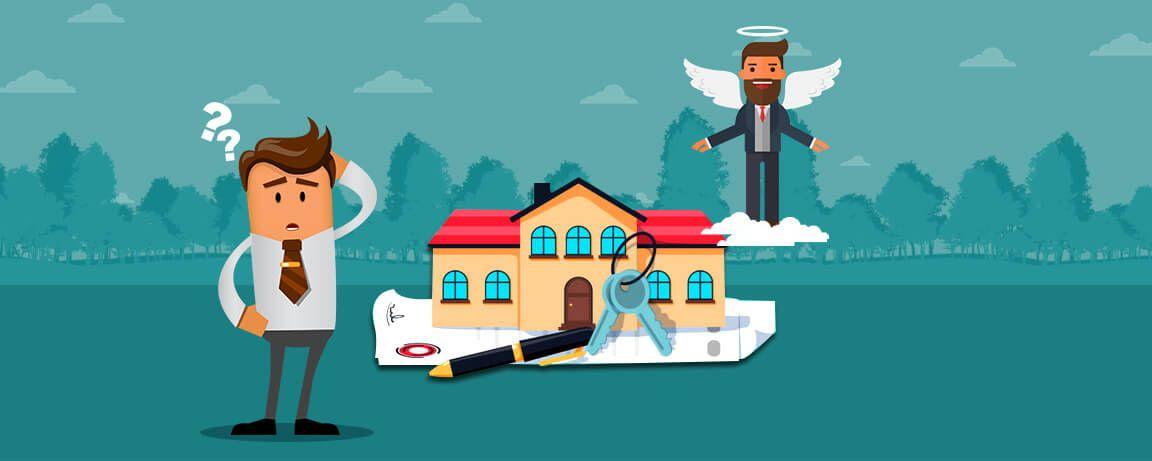What Happens When a Home Loan Borrower Passes Away?
Although this may seem to be a very morbid question, it is a very valid one and should be asked by anyone who is taking a Home Loan. Therefore, what really happens to the Home Loan when the borrower passes away – it may be due to an untimely accident or it may so happen that he or she dies naturally? What will the bank do in such a condition?
It would, of course, be whimsical to imagine that the bank would forgo this Home Loan(even if it is a bank that provides the Best Home Loan) and with the borrower not available anymore. However, this is not the case. If you are wondering what happens in such a condition, read on:
If a bank starts to forgo Home Loans when the borrower dies, they are looking at a grim situation and very soon, they may just go out of business. Hence, for the safekeeping of these financial institutions and banks, there are certain laws enacted by the government. Under these laws, the lender must follow to collect the loan, or they may seize the collateral that the borrower owned and had put down as security with the bank.
Additional Info: Also check Rs. 1 Crore Home Loan EMI
Who will be Responsible for Paying off this Loan?
In most of the common cases, the loan has to be repaid by your legal heir from his or her available assets. In case, the family does not have the requisite assets to pay for the loan, the bank will be bound to seize any of the available collateral or security. Hence, when you are taking a Home Loan of a sizeable amount, it is advisable to go for Loan Insurance.
In fact, most banks are now offering insurance along with their home loan packages to prevent such a tepid scenario. For instance, State Bank of India provides a free personal accident insurance cover with the policy. Other banks have followed suit too and provide such insurance cover for cases when the borrower either passes away or is not in a situation to pay for that loan.
Let us cover some other scenarios when the borrower cannot pay back the loan:
When the Borrower is Disabled?
This is a unique scenario and as soon as this happens, if the family of the borrower is not in a condition to pay the EMIs, the bank needs to be immediately informed. Since this is an unanticipated case, under humanitarian grounds, the bank may restructure the loan so that the family of the borrower is not burdened by the loan. There is something called the ‘EMI holiday’ and in case such a situation ever arises, the bank may grant it under special circumstances.
Ways in which the Bank can Help:
- Postpone the EMI for a certain amount of time until the borrower’s family is able to gather their finances
- Restructure the loan in a way that the EMI to be paid per month is reduced and the tenure of the loan increases
Does the Family of the Borrower have to Pay?
Yes, whenever the borrower passes away, the Home Loan will automatically transfer to the co-applicant or to the legal heirs. The loan amount that remains pending is the duty of the legal heirs or the family. They are bound by the law to pay it. This is despite the fact that the family has suffered a major financial blow. If they are not able to pay it back, the bank will have no option but to sell off their collateral or other security.
Also Check: Best Home Loan Interest Rates starting @8.50%
What happens if the Borrower has Co-signers or Joint-debtors?
Also known as the co-applicants, whenever the borrower dies, these individuals are automatically turned into the primary borrowers and the loan is now their responsibility and they will have to pay it back to the bank.
If the co-signers or the joint-debtors are not in the position to pay back the loan amount, the bank has the option to file a lawsuit against them in order to get the money back. This is again a very grim situation and hence the co-signers need to be prepared. A lawsuit will not only tarnish their reputation, but their Credit Score will also plummet.
Repayment of the Secured Loan:
If the deceased had a Secured Home Loan, the family members of the borrower have to inform the bank about the borrower’s death and furnish a death certificate as a proof to the bank. The next of the kin are responsible for paying off the rest of the loan amount.
In the case the borrower does not have any family who is willing to take the asset, the bank will seize the collateral that was put forward as security. In this case, the bank cannot force other family members to pay off the debt.
Repayment of Unsecured Loan:
In case of an unsecured loan, there is no collateral associated with the loan and hence there is no property that the bank can seize to get back the loan amount. Hence, the bank has to file a lawsuit. If there are other assets, the bank has the right to seize these and pay off the creditors before allocating the rest of the assets according to the deceased’s will.
Hence, the best advice is to go for an in-built cover. When you opt for SBI Home Loan, or DHFL Home Loan, or a housing loan from any of the leading banks of the nation, you can always check if they provide insurance covers.
To apply online for Credit Cards, Secured Loans and Unsecured Loans, visit www.mymoneymantra.com, the leading online lending marketplace that offers financial products from 100+ Banks and NBFCs. We have served 5 million+ happy customers since 1989.

